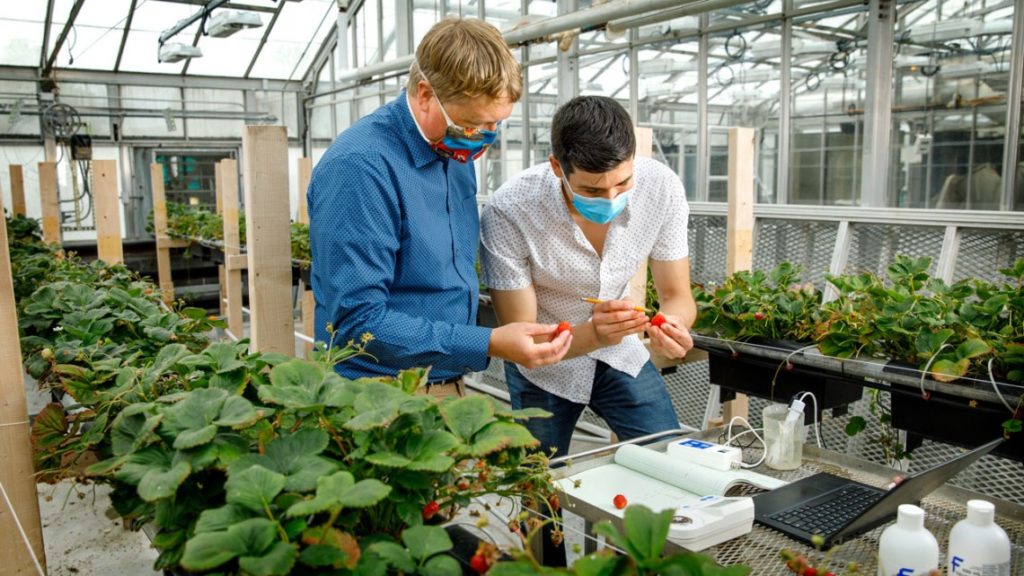In the News: Our Director Helps Provide CEA Training Opportunities

Neil Mattson, left, works with Ph.D. student Jonathan Allred to collect data from strawberries growing in a greenhouse. Farmers are increasingly turning to controlled environments like greenhouses to expand their operations.
Courtesy of Jason Koski / Cornell University
As the year-round market demand for local food grows, more farmers are using controlled environments, such as greenhouses, to efficiently produce fresh, high-quality fruits and vegetables. However, this controlled environment agriculture, or CEA, requires advanced knowledge of both infrastructure and plant biology. As a result, it has been difficult for many farmers to come by the necessary training to break into the CEA industry.
Luckily, the Cornell Small Farms Program’s director, Anu Rangarajan, is using her experience with urban agriculture and farmer training to help. Thanks to a recent $496,000 grant from the U.S. Department of Agriculture’s National Institute of Food and Agriculture (NIFA), Rangarajan will work alongside Neil Mattson, associate professor of horticulture in the College of Agriculture and Life Sciences’ School of Integrative Plant Science, to design new training programs for farmers looking to get their hands dirty – in a greenhouse, that is.
Rangarajan and Mattson will collaborate with industry leaders, as well as experts from Ohio State University’s Agricultural Technical Institute and SUNY Broome Community College, to develop two programs. One will be a technical training certificate in CEA production, and the other will be a two-year Associate of Applied Science degree for students enrolled in those schools and for other community colleges to integrate into their curriculum. Participants in both programs will gain experience with all aspects of CEA agriculture, including pest management, food safety, marketing skills, and infrastructure like hydroponics and aquaculture.
In addition to supporting more local and sustainable food systems, Rangarajan said the work they’ve done thus far has been essential for learning how to provide more skilled-training opportunities for new farmers.
“Our efforts have laid the groundwork,” she told CALS News, “for what I hope will be a dynamic training program that will build the workforce and elevate the industry as a whole.”
Rangarajan already oversees numerous training programs and has spent the last five years working with commercial urban agriculture operations to better understand the key factors that influence farm viability. As part of the new project, she will lead the development of an online delivery platform for the new programming. She and Mattson hope to make the programs as accessible and useful as possible for all participants.
“Growers consistently state that finding well-trained personnel to operate their facilities is among the largest barriers to expansion,” Mattson told CALS News. “This project uses a targeted approach to determine what skill sets are most critical, and it develops several pathways for training — both for traditional college students and for the professional development of existing employees.”
A version of this article appeared on the CALS website.

